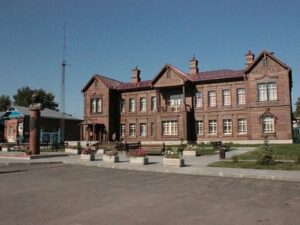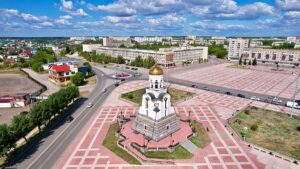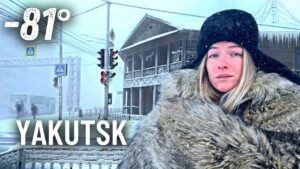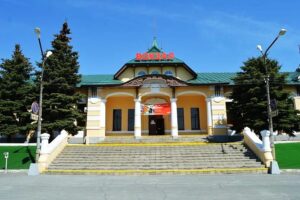A Profound Exploration of Identity and Heritage: Unraveling “On Earth We’re Briefly Gorgeous” by Ocean Vuong

Ocean Vuong’s debut novel, “On Earth We’re Briefly Gorgeous,” is a literary masterpiece that transcends traditional boundaries of storytelling. Through poetic prose and a deeply introspective narrative, Vuong invites readers on a journey that explores themes of identity, family, love, and the complex interplay between personal and cultural histories. In this extensive book review, we embark on a comprehensive exploration of the novel, dissecting its narrative elements, characters, and the profound impact it leaves on those who delve into its pages.
The Essence of the Narrative
Epistolary Form
“At once a witness and a mirror,” Vuong’s novel takes the form of a letter from the protagonist, Little Dog, to his illiterate mother, Rose. This epistolary approach lends an intimate and confessional quality to the narrative, creating a space for vulnerability and raw emotion. The act of writing becomes a cathartic exercise for Little Dog as he attempts to bridge the generational and linguistic gaps between him and his family.
A Tapestry of Memories
The narrative unfolds as a tapestry of memories, anecdotes, and reflections, intricately woven together to construct the mosaic of Little Dog’s life. Vuong’s prose, imbued with poetic sensibility, elevates the storytelling to an art form. The novel becomes a lyrical exploration of the human experience, with language serving as both a bridge and a divide between the characters.
Interplay of Past and Present
Vuong seamlessly navigates the interplay of past and present, employing nonlinear storytelling to reveal the layers of Little Dog’s identity. The narrative oscillates between his childhood in Hartford, Connecticut, and his adult life as a writer in New York. This temporal dance adds depth to the storytelling, allowing readers to witness the evolution of the protagonist and the impact of his upbringing on his present self.
Characters: A Symphony of Complexity
Little Dog
The central character, known simply as Little Dog, emerges as a complex and multi-faceted protagonist. Born in Vietnam during the aftermath of the Vietnam War, Little Dog grapples with the dualities of his identity as an immigrant and a queer individual. His journey becomes a lens through which Vuong explores the intricacies of identity formation and the pursuit of self-discovery.
Rose
Little Dog’s mother, Rose, occupies a poignant space in the narrative. A Vietnamese immigrant haunted by the traumas of war, Rose’s silence becomes a powerful narrative force. Vuong captures the weight of unspoken pain and the resilience of a mother determined to provide a better life for her son. The mother-son relationship becomes a focal point, illustrating the universal themes of sacrifice and the intergenerational transmission of trauma.
Lan and Trevor
The novel introduces Lan and Trevor, significant figures in Little Dog’s life. Lan, his first love, navigates the complexities of identity and acceptance, adding another layer to the exploration of queerness. Trevor, on the other hand, embodies the challenges and vulnerabilities of love in the face of societal expectations. These characters contribute to the rich tapestry of relationships, each offering a unique perspective on love, identity, and the search for connection.
Themes: An Odyssey of Exploration
Cultural Identity
Vuong’s exploration of cultural identity is at the heart of the novel. Little Dog’s journey as a Vietnamese immigrant in America unfolds against a backdrop of cultural assimilation, racism, and the persistent ache of displacement. Vuong deftly captures the nuances of the immigrant experience, delving into the tension between preserving one’s heritage and adapting to a new cultural landscape.
Queerness and Love
The novel boldly confronts issues of queerness and the complexity of love. Little Dog’s exploration of his sexuality, particularly in the context of societal expectations and cultural norms, becomes a poignant narrative thread. Vuong delicately portrays the intricacies of queer love, unearthing the vulnerabilities and triumphs that accompany the quest for acceptance and understanding.
Intergenerational Trauma
A pervasive theme in the novel is the shadow of intergenerational trauma. The characters, particularly Rose, carry the scars of war and displacement. Vuong reflects on the ways in which trauma permeates familial relationships, shaping the experiences of subsequent generations. The novel becomes a meditation on resilience, healing, and the profound impact of historical trauma on individual lives.
Writing Style: A Lyrical Tapestry
Poetic Prose
Vuong’s background as a poet is evident in the novel’s lyrical prose. Each sentence is a carefully crafted brushstroke, painting vivid images and evoking deep emotions. The beauty of the language elevates the storytelling, inviting readers to savor the richness of each word and phrase. The novel’s poetic quality transcends mere storytelling; it becomes an immersive and sensory experience.
Symbolism and Imagery
Rich in symbolism and imagery, the novel employs evocative language to convey complex emotions and themes. Vuong utilizes nature, particularly the imagery of butterflies, as a symbolic motif throughout the narrative. The metamorphosis of butterflies serves as a metaphor for transformation, mirroring the protagonist’s journey of self-discovery and evolution.
Impact of Language
The novel grapples with the power and limitations of language. Little Dog, straddling two languages and cultures, reflects on the inadequacy of words to fully capture the depth of experience. Vuong’s exploration of language becomes a meta-narrative, inviting readers to consider the role of language in shaping individual and cultural identities.
Reception and Impact
“On Earth We’re Briefly Gorgeous” has received widespread critical acclaim, garnering praise for its lyrical prose, nuanced exploration of identity, and its contribution to contemporary literature. Vuong’s novel has become a cultural touchstone, sparking conversations about the immigrant experience, queerness, and the enduring impact of historical trauma.
Conclusion: A Profound Exploration of the Human Spirit
In conclusion, “On Earth We’re Briefly Gorgeous” by Ocean Vuong stands as a testament to the power of literature to delve into the depths of the human spirit. Through the lens of Little Dog’s narrative, Vuong crafts a masterpiece that transcends genres, blending fiction and poetry to create a work of profound beauty and emotional resonance. The novel’s exploration of identity, family, and love resonates with readers on a visceral level, inviting them to contemplate the universal themes that bind us all. “On Earth We’re Briefly Gorgeous” is not merely a novel; it is a lyrical odyssey—a journey that lingers in the hearts and minds of those fortunate enough to traverse its pages.




